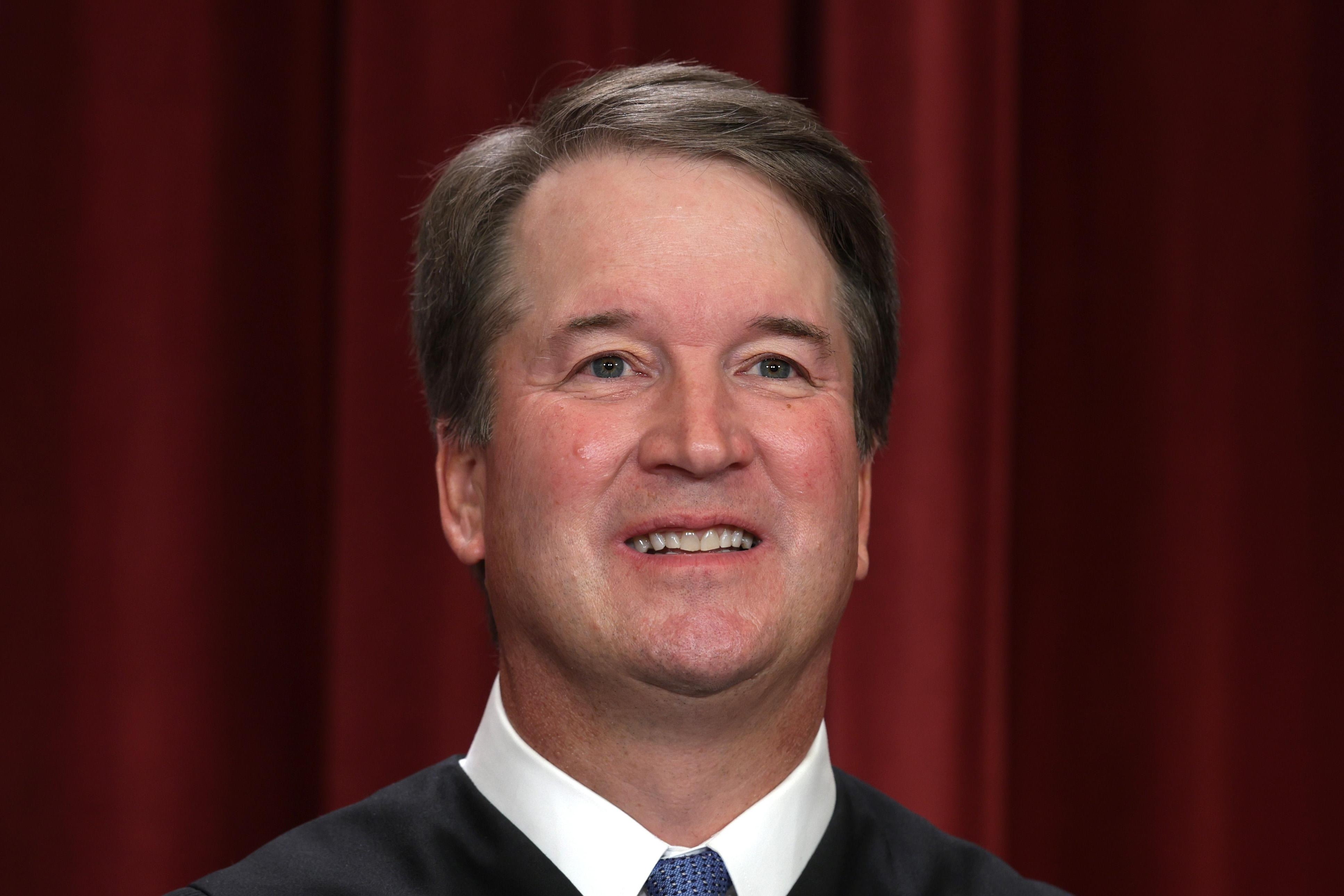On its opening night on Thursday, Sundance lobbed a grenade into festivalgoers’ carefully planned schedules. The following night, they announced, the festival would host the world premiere of Justice, Doug Liman’s documentary about Brett Kavanaugh’s Supreme Court confirmation hearings.
As with last year’s Navalny, which was dropped into the documentary competition with 24 hours’ notice, the sudden appearance of Justice gave the film a sense of urgency and mystery. What sort of explosive revelations could this movie contain that would necessitate keeping it under wraps until the very last minute?
After standing in a crowded tent for an hour and making my way into the packed screening, I can answer that question with: not much. The across-the-board consensus is that Justice, at least in this 85-minute “festival cut,” is devoid of bombshells. A call to the FBI tipline from Kavanaugh’s former Yale classmate Max Stier gets the cloak-and-dagger treatment, with a hidden camera and a digitally disguised voice leading us to a handheld recorder that plays back Stier’s statement that he heard others at school talking about Kavanaugh’s sexual assault of fellow classmate Deborah Ramirez, who alleges that Kavanaugh drunkenly stuck his penis in her face in front of several witnesses. (Kavanaugh has denied all allegations, and he and Stier declined to speak to the filmmakers.) But Stier’s tip and Ramirez’s allegations were widely reported on in 2019, and simply hearing his actual call for the first time does not amount to anything close to a smoking gun.
Then again, is that the standard by which a documentary like this should be judged—a standard by which the vast majority of issue-driven nonfiction films fall short? Not even the film’s directors agreed. After the screening, Liman, the Bourne Identity director who made his documentary debut with Justice, which he also financed himself, admitted that “We live in a climate where it didn’t matter what we put in this movie.” (Liman’s father, Arthur Liman, was chief counsel for the Iran-Contra investigation when the filmmaker-to-be was in his early 20s, so he is no stranger to Congressional investigations.) Those who believed Kavanaugh’s denials—or at least considered the assault claims put forward by Ramirez, Christine Blasey Ford, and numerous others to be less important than securing his nomination to the Supreme Court—would not be swayed by Justice even in the unlikely event that they found themselves watching it, and those who believed his accusers need no further confirmation. “I sort of came to the answer for myself that maybe the truth matters,” Liman went on. “In a hundred years, this film will exist, and maybe that’s it.”
But Amy Herdy, the investigative journalist who led the film’s research team, and has worked as a researcher on numerous films about sexual assault, including The Hunting Ground, On the Record, and Allen v. Farrow, immediately took issue with Liman’s philosophical bent. “Yeah, I’m not happy with that, with all due respect, Doug,” she said. “I do hope that this triggers outrage. I do hope that this triggers action. I do hope that this triggers additional investigation with real subpoena powers.” One reason for the movie’s short length was the decision to leave out any Kavanaugh accuser whose allegations couldn’t be corroborated, and because Ford, who appears at the edge of the frame in the opening shot as Liman attempts to convince her to be part of the film, evidently decided not to participate. (Her indelible Senate testimony is, of course, included.) But Herdy said that within half an hour of the film’s existence being announced to the world, new tips were coming through Justice’s website, and they might well end up becoming part of the final version.
Justice does give Ramirez, who said in 2018 that she was willing to testify in front of Congress but was never called, a chance to speak at length, and for experts in psychological trauma to explain why her memory of the assault can be precisely detailed in some instances and vague in others. One of the movie’s most damning points is that Republican counsel Rachel Mitchell, who pounced on minor lapses and inconsistencies in Blasey Ford’s testimony in an attempt to undermine her credibility as a witness, had worked enough sexual assault cases as a prosecutor to understand exactly how traumatic memory works, and knowingly used that experience to attack Blasey Ford instead. (At one point she grilled Blasey Ford on whether she had actually overhead a conversation on the floor below the room where Kavanaugh allegedly groped her, or whether she just knew that people were talking.) And while Blasey Ford herself does not appear, several of her childhood friends, who also grew up with Kavanaugh, go in front of the camera and make it clear that Kavanaugh at the very least lied under Congressional oath about the extent and excess of his high school and college drunkenness—an act that in itself ought to be disqualifying for an application to the nation’s highest court.
The question of whether this matters depends in large part on where you set the bar. Based on this version of Justice, the movie stands little chance of convincing the FBI to reopen its investigation, let alone of that investigation turning up anything that might affect Kavanaugh’s place on the court. But it’s an almost impossible goal to expect one movie to succeed where the entire apparatus of the Democratic Party failed. What it might do, especially in an expanded and strengthened version, is to help ensure that Kavanaugh never escapes what Ramirez and Blasey Ford say he did, that his every ruling and public statement is seen through the lens of the person they say he is. That might not matter in a hundred years, but it could matter now.
